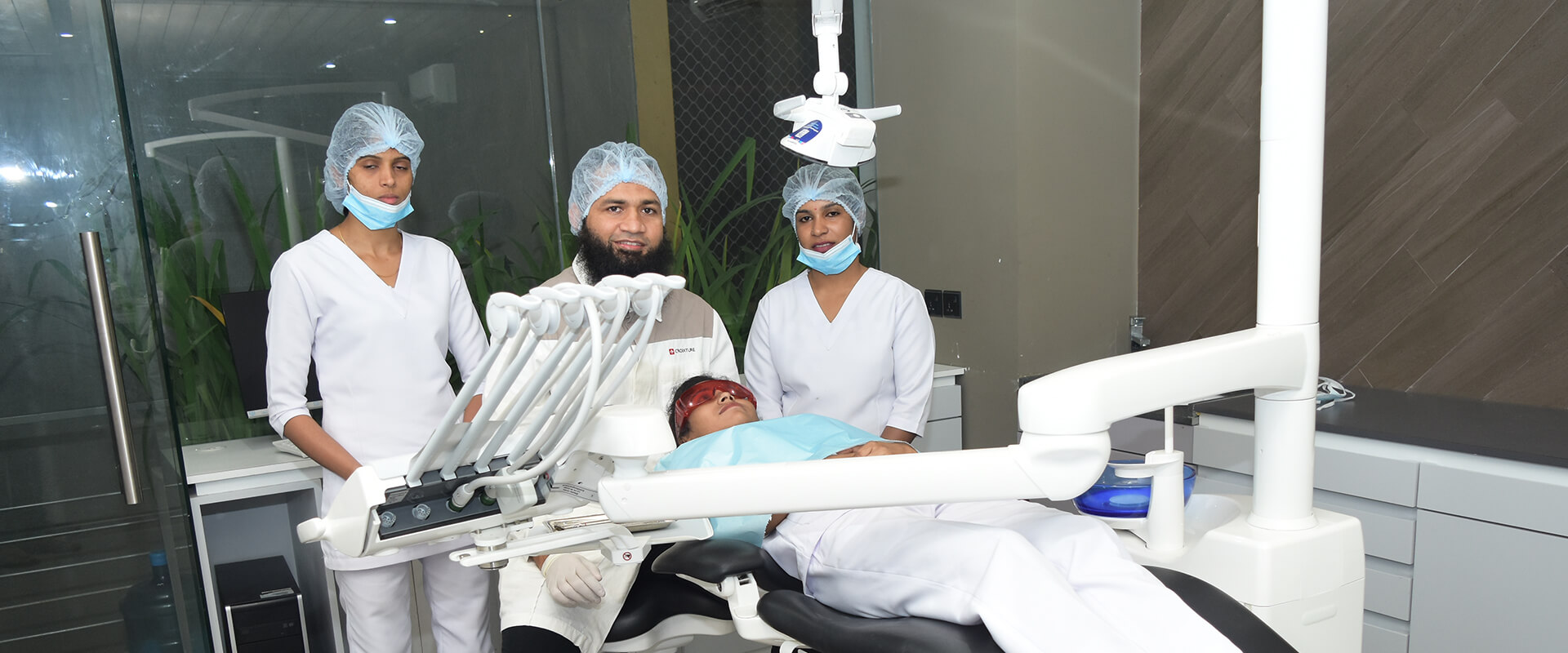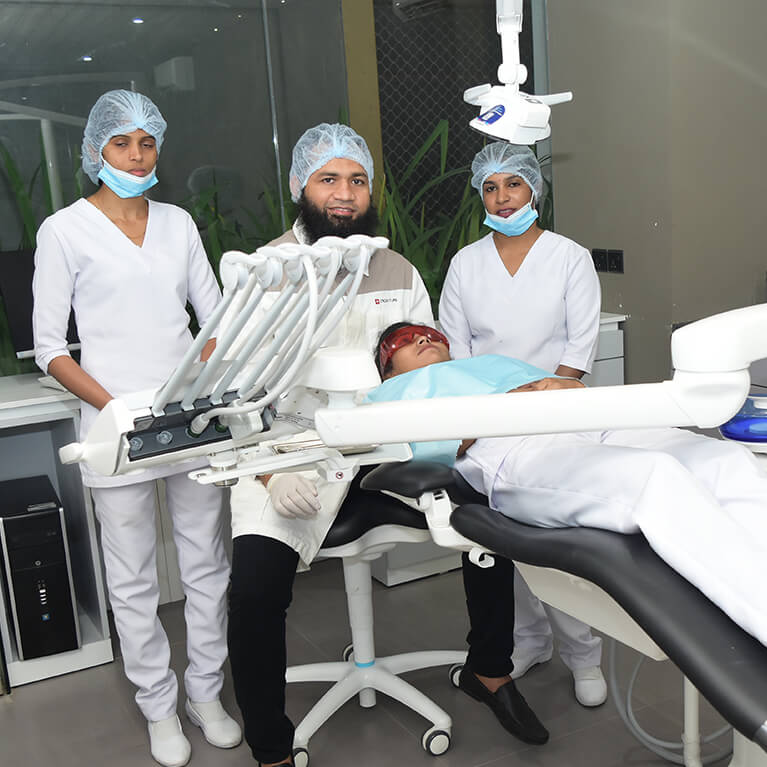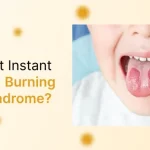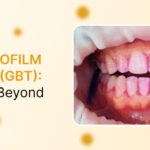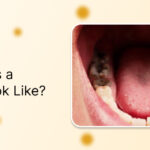The importance of soft bristles for gum health
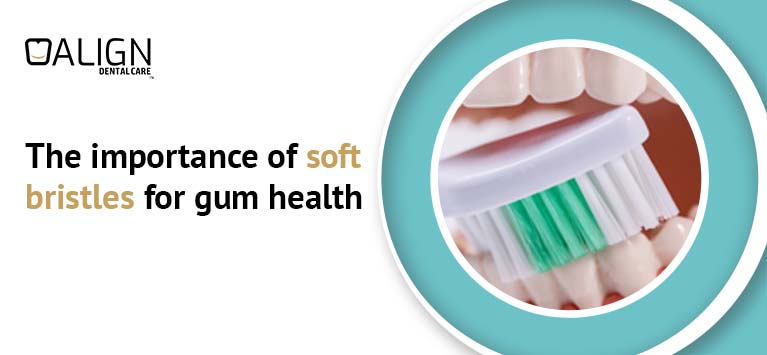
Gum disease is often caused by improper brushing techniques and hard brush bristles. People who prefer stiff-bristled toothbrushes often use force, even if they brush in small circular motions, as dentists recommend, rather than back and forth along the surface of the teeth.
For example, young people harm their gums by using a toothbrush with hard bristles. This is all the more dangerous because they are confident that they are brushing their teeth and gums correctly. They pay great attention to oral hygiene and, therefore, can cause damage to the sulci (gum lines) because they brush their teeth too often and too vigorously with a very hard-bristled brush.
Hard bristles increase excess pressure when brushing your teeth.
Brushing your teeth too vigorously, whether with a medium-hard or hard bristle brush, can potentially harm your gums without causing immediate discomfort. But as a result, the consequences will be disastrous: the groove deepens, the gum line slowly descends, and, over time, the neck of the teeth is exposed, and high sensitivity to pain appears.
Dentists in research, teaching, and practice recommend toothbrushes with soft and fine bristles. If the bristles of the brush are soft, then it will not cause any harm. If, in addition, the bristles are thin, then the grooves of the teeth are easily accessible, and such a brush carefully eliminates harmful bacteria. This is important since many bacteria accumulate in inaccessible places that can be easily damaged.
Soft bristle toothbrush: what are its advantages?
You should try to remember one fundamental thing: oral hygiene is essential to maintaining good oral health and avoiding problems related to poor hygiene. In the pursuit of resolving fundamental dental issues, the utilization of a toothbrush with soft bristles emerges as a captivating solution and a promising first step. It’s essential to note, as a starting point, that the primary issues involve tooth decay and gum difficulties, particularly gingivitis.
Here are the keys to making your oral cleaning an effective and efficient process, even if you have decided to buy and use a soft-bristle electric toothbrush.
Recommendations for toothbrush hardness
As it is widely acknowledged, the toothbrush stands as an essential instrument for maintaining oral health. Numerous options abound in the market, such as the gentle bristle dental implement. Toothbrushes from multiple brands and in various shapes and hardnesses are available.
Let’s first explore the hardness of toothbrushes because not all toothbrushes are the same, and not all take care of our teeth in the same way.
A prevailing misconception persists among many individuals, asserting that a toothbrush with firm bristles delivers markedly superior cleaning efficacy when compared to its softer-bristle counterpart. This belief, rooted in the idea that bristle hardness equates to enhanced cleaning, is fundamentally flawed.
In truth, using a toothbrush with harder bristles can be detrimental to both your enamel and gums, particularly if you observe noticeable bristle wear within a few weeks. Consequently, persisting with a toothbrush featuring excessive bristle hardness not only fails to improve cleaning but also poses a significant risk to your dental health.
On the contrary, soft or medium-hard toothbrushes are ideal. Indeed, in some special cases, several people try to purchase and use an ultra-soft bristle toothbrush, essential for those with more fragile dental conditions.
In general, however, if you brush correctly for at least two minutes and also use other supplements for correct oral hygiene, you will achieve effective dental cleaning without damaging your teeth. Remember that applying more pressure does not lead to better cleaning.
When it comes to toothbrush use, soft or hard bristles can make a difference. Let’s now see in the next paragraph how to perform correct oral hygiene.
Oral hygiene beyond brushing
The toothbrush, though unquestionably vital, should not be viewed in isolation. In tandem with a soft-bristle toothbrush, it is advisable to introduce complementary components like dental floss and mouthwash into your oral care regimen. So, an ideal brushing would include these steps:
- Morning: when you use your toothbrush, soft or hard bristles create different consequences. When brushing your teeth, it is recommended never using toothbrushes with hard bristles;
- Afternoon: brush your teeth immediately after lunch so as to eliminate most of the impurities and food debris present between the teeth;
- Night: deep brushing, use of dental floss or brushes to remove dirt accumulated during the day, and finally, use of mouthwash.
Don’t forget these steps to have good oral hygiene. Remember that at your clinic, they will certainly be at your complete disposal to answer any questions about your oral hygiene habits. Do not hesitate to contact your dentist without obligation. If you have decided to buy an electric toothbrush, soft bristles will be excellent, but know that traditional toothbrushes must be of medium or soft hardness because if they are very hard, they can wear away the tooth enamel. It is not necessary to use very hard brushes or to wring out the toothbrush too much to achieve good hygiene.
Occasionally, in pursuit of thorough dental cleaning, individuals may exert excessive force on their teeth and gums, potentially causing discomfort to their gums. This is precisely why we advocate for the utilization of a gentle-bristle toothbrush.
Remember
If you have to change your toothbrush, hard bristles should be avoided. In general, hard bristles are not recommended as their prolonged use over time can cause alterations to the gums, so the choice will generally be that of medium hardness.
However, in case of doubt, it is always advisable to consult a specialist dentist. Your dentist possesses intimate knowledge of your unique clinical circumstances, your dental structure, and your gum health. Consequently, they are well-equipped to prescribe the most effective toothbrush for optimal outcomes. Prioritize the well-being of your dental aesthetics and overall oral health.
Causes, Impacts, and Strategies for Managing Xerostomia
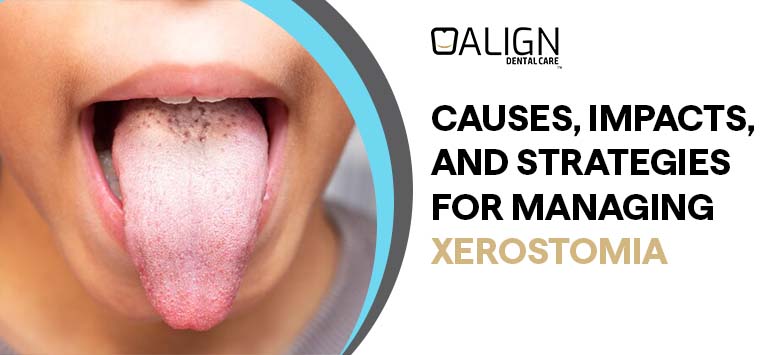
Saliva, or spit within your mouth, plays an important role. It aids in the chewing and swallowing of food and protects your mouth from bacteria and tooth decay. When your spit glands do not produce enough saliva, a condition known as xerostomia occurs. This might cause your mouth to feel dry and unpleasant.
What is Xerostomia?
Xerostomia or dry mouth syndrome is an alteration of the salivary glands that produces an unpleasant sensation of dry mouth. The saliva decreases, and it acquires a viscous and foamy texture. The sense of taste is altered, and a sensation of pain and burning appears on the tongue.
Beyond the annoying sensation, it can trigger more serious problems. It usually causes dryness, irritation, and cracking in the mouth’s soft tissues, which puts the patient at risk of attack by microorganisms. Because saliva also serves as an antiseptic in the oral cavity, when its production declines, the risk doubles, and the mucous membranes and gums may become inflamed (gingivitis), or cavities, painful ulcerations, and halitosis may emerge.
Dry mouth syndrome can cause digestive and respiratory problems, including pharyngitis, dyspepsia, and constipation.
Causes of dry mouth syndrome
Dry mouth can be caused by several circumstances, including the following:
Medications
Certain pharmaceuticals, such as antihistamines, decongestants, and blood pressure medications, can cause dry mouth.
Aging
While dry mouth is not a natural result, older people tend to take more drugs, some of which might cause it.
Cancer treatment
Radiation therapy to the head and neck can cause salivary gland damage, resulting in decreased saliva production. Chemotherapy can also cause changes in the content and amount of saliva.
Injury or surgery
A dry mouth can be caused by an injury or surgery to the nerves in the head and neck area.
Tobacco use
Both chewing and smoking tobacco might increase the likelihood of developing dry mouth.
Dehydration
A lack of fluid intake might result in dry mouth.
Hot weather and physical activity
The salivary glands can dry when the body’s fluids are diverted elsewhere during exercise or exposure to heat.
Certain health conditions and habits can contribute to dry mouth, including anxiety and depression, HIV and AIDS, poorly managed diabetes, Sjögren’s syndrome, sleeping with an open mouth, snoring, and stroke or Alzheimer’s disease (though these may cause a sensation of dryness even if the salivary glands are functioning normally).
Risk factors
- Although aging is not a direct cause of dry mouth, older individuals are more prone to having dry mouth because They frequently use drugs that might cause dry mouth.
- They are likelier to have health conditions that cause dry mouth (such as type 2 diabetes).
- They have a lowered thirst perception and may be dehydrated.
- Tobacco usage can also exacerbate symptoms, regardless of age.
Symptoms of Dry Mouth
In addition to the perception of dry mouth, people suffering from this problem may also have problems with:
- Burning sensation in the mouth.
- Thick and dense saliva.
- Altered sense of taste (dysgeusia) and perception of a bitter mouth.
- Tongue reddened and smooth, with loss of filiform papillae.
- Difficulty swallowing.
- Split and chapped lips.
- Halitosis.
- Mouth ulcers.
- Cavities.
- Periodontitis.
- Candida albicans infections of the mouth.
People who suffer from dry mouth, particularly those suffering from Sjögren’s syndrome, are more susceptible to developing gastroesophageal reflux disease. More prone to gastroesophageal reflux, which appears as retrosternal burning.
Site inflammation of the main salivary glands is also characteristic in these patients, manifested by swelling associated with local pain.
Xerostomia: clinical manifestations
Because a reduction in saliva production largely defines xerostomia, clinical symptoms of this condition include different harmful effects of dry mouth on the body.
In the lack of enough saliva in the oral cavity, for example, suppuration occurs, the risk of acquiring fungal infections rises, and the impression of food flavour changes.
This illness progresses through multiple stages:
- Xerostomia is difficult to detect in the early stages since the submandibular and parotid salivary glands continue to release adequate saliva, and pain is felt only after a long talk.
- In the future, saliva production decreases, resulting in the so-called partial decompensation stage during which eating becomes so tough that going without water becomes impossible.
- The salivary glands nearly totally stop operating during the third phase. This causes a variety of mouth disorders, such as stomatitis, glossitis, and oral mucosa diseases. These problems include erosion, ulcers, chapped lips, and sores in the corners of the mouth.
- Seizures, recurrent sore throats, painful throat complaints, and the development of chronic periodontitis are also noted in addition to the major signs. Patients with removable dentures experience difficulty with their procedure because their tongue turns bright red.
Treatments and Strategies for Managing Xerostomia
The first and most important step in dealing with xerostomia is diagnosing the problem. The doctor conducts a conversation with the patient to learn about their medicines and previous dental operations. Tests such as sialography and salivary gland ultrasounds are used to diagnose xerostomia.
Symptomatic treatment of xerostomia provides patients with short relief. However, determining the etiology of the disease is critical. When xerostomia is caused by medicine, it is generally simple to give aid. However, the odds of recovery are significantly reduced for people who have received radiation therapy due to probable interference with salivary gland function.
During treatment, a special role is played by pathogenetic therapy aimed at combating the causes of xerostomia. For treatment, novocaine is applied to the parotid and submandibular salivary glands. As well as the following procedures: electrophoresis, galvanotherapy, and vibration massage.
To alleviate the condition, it is recommended to increase the consumption of pure still water. Lollipops (preferably natural and with a sugar substitute) and chewing gum are also suitable.
Avoid dry and salty foods and alcohol – including alcohol-containing mouthwashes. Quitting smoking and choosing a toothbrush with softer bristles is recommended.
The healing process depends on a number of factors, but in most cases (excluding cases of atrophy of the salivary glands), if all the doctor’s recommendations are followed, the prognosis is favourable.
Conclusion
Xerostomia, characterized by dry mouth due to reduced salivation, poses various challenges and impacts on oral health. While it can result from multiple causes, including medication side effects and underlying conditions, prompt diagnosis and treatment are essential. Managing xerostomia involves symptomatic relief, addressing its root causes, and adopting oral hygiene measures. Adequate water intake, avoidance of certain foods and habits, and medical interventions can alleviate discomfort. With proper care, the prognosis for xerostomia can be favourable, improving overall oral well-being.
10 tips to get rid of dental anxiety
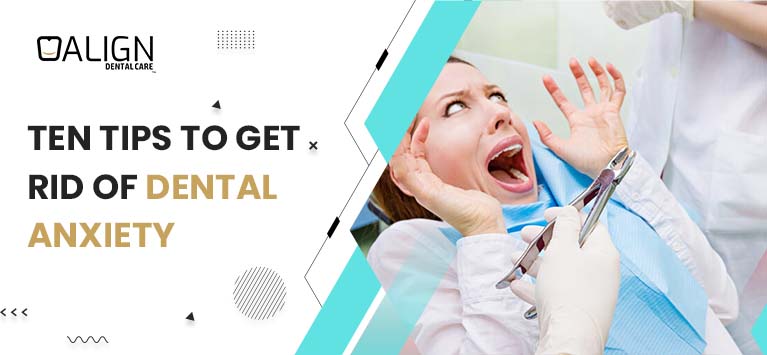
Do you find visiting the dentist terrifying? Despite being more prevalent, dental anxiety is easily manageable.
Your oral health will be negatively impacted if you cannot overcome your dental phobia. So throw your fear out by knowing what dental anxiety is and including its symptoms, reasons for existing, and some tactics and strategies for overcoming it in this blog post.
Read on to overcome your phobia!
Dental anxiety: What is it?
Dental anxiety is the anxiety, dread, or tension related to a dental environment.
Odontophobia, often known as dental phobia, is a relatively frequent cause of people skipping their scheduled exams for oral health. Some individuals are genuinely terrified to visit the dentist.
Signs and symptoms of dental anxiety
Here are some symptoms that indicate you have dental anxiety.
- Increase in heartbeat rate
- Using humor or aggression to disguise nervousness
- Low blood pressure
- Sweating
Causes of dental anxiety
- Fear of pain
- Poor experience
- Embarrassment in allowing others to touch your mouth
- Fear of needles and drill sound
- A poor impression of dentists
- Panic due to claustrophobia
Tips and tricks to overcome dental anxiety
We know that there will always be remedies if there is an issue. Here are some tips and tricks for a calm and relaxed dental checkup.
Pick the ideal dentist for yourself.
First and foremost, you must select a reputable dentist who specializes in helping those who have anxiety and fear of the dentist. Additionally, pick a dentist who treats you well and who gets positive feedback from their present patients.
Share your anxiety.
Sharing your feelings can have a significant impact on how things turn out. Discussing your fears with your dentist may help you overcome them and maintain your comfort. There are others you can discuss your anxiety with besides your dentist. You can seek counseling or talk to your friends and family about your anxiety.
Deviation may be advantageous.
If there is a television in the clinic, you can watch films, videos, and other media there. If not, you can use your tablet or mobile device. Get relaxed by endeavoring deviation strategies like hearing your favorite playlists, audio files, and podcasts. Even engaging in conversions helps you distract from dental fear.
Engage in deep breathing exercises.
Breathing is the key to remaining calm and relaxing in some situations. Breathing can bring physiological changes to our body, like reducing the heart’s pulse rate and lowering blood pressure. Additionally, the blood stress level can also be lowered.
CBT (Cognitive-Behavioural Therapy).
CBT is a form of psychological treatment. It will help people manage mental health conditions like stress, depression, phobias, and anxiety. This treatment approach helps you recognize negative thoughts and find ways to replace them with positive ones. So, this therapy can be used to treat dental phobia and its associated conditions.
Request for sedative solutions.
Sedatives are one of the options. Ask your dentist about sedatives using relaxation techniques if you cannot reduce your anxiety. During dental procedures, sedation is used to keep you comfortable. Nitrous oxide, oral conscious sedation, and intravenous (IV) sedation are available.
Bring a support person along.
A friend can sometimes be all you need to grasp your hand and reassure you that everything will be good. Ask a friend or member of your family to accompany you if you’re nervous about receiving therapy. A friend may sit by your side in the room during the procedure.
Skip the caffeine.
Before a dentist appointment, pay attention to your food. It’s common knowledge that foods heavy in sugar and caffeine can cause jitters, so it’s best to avoid them before your visit. Instead, opt for protein-rich foods, as they have a soothing influence.
Establish non-frantic times for your appointments.
Choose a time for your appointment that is convenient for you. Avoid rushing to your appointment on time because doing so will make you uptight and anxious. You might find it beneficial to lessen your worry when fewer patients are scheduled.
Take breaks.
You can relax for a while between dental procedures by taking pauses. You can utilize a few signs to let your dentists know you need a rest. As a result of your mind and body relaxing when needed, this will lower your anxiety level.
Bottom Line
It’s not difficult to overcome your dentophobia. Your dental anxiety should never take you away from your path toward maintaining excellent oral hygiene. It’s essential to be open about your anxiety, consult a dentist, and share your problems. Follow these tips to eliminate anxiety and maintain excellent oral hygiene through regular dental checkups.
5 possible reasons behind the salty taste in your mouth
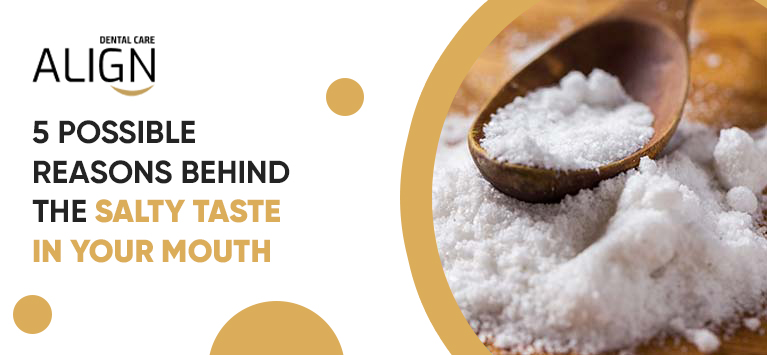
It is common to have a salty taste in the mouth for a few minutes after eating processed potato chips. You might feel such salty taste in your mouth after having various snacks.
Do you notice such salty taste even though you do not snack? If you sense it frequently, this blog post is for you. It might be an indication of abnormal happenings that take place inside your body.
Keep reading to know the possible causes of salty taste inside your mouth.
Read More…What does gum line cavity mean?
Cavity is the most common dental problem that affects many people. According to the National Oral Health Survey of India, 69.3 percent of people suffer from tooth cavities (in the 35–44 age group). It can form anywhere on the teeth.
Many people do not know the difference between gum line cavities and other types of cavities.
This blog will explain to you in detail what gum line cavities are, what causes them, and how to treat them.
What is gum line cavity?
A gum-line cavity is one of the common dental conditions that affect the space between the gums and the teeth. Usually, this occurs if the root of a tooth gets exposed as a result of receding gum tissue, leaving them vulnerable to tooth decay or severe toothache. It is caused by pressure on these sensitive places.
In some cases, the gum line might develop cavities that reach the crown and the root.
However, a more extensive treatment might be required to prevent the cavity from growing larger.
Read More…Why does coffee make your mouth dry?
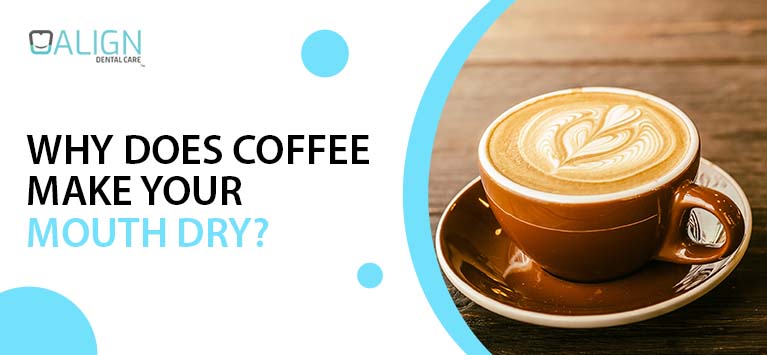
For many individuals worldwide, a morning would only be complete with a cup of coffee. As the drink has a stimulating impact on people because of its caffeine content, many people would love to begin their day with this drink. This blog article is for you if you are one of such persons.
You might sense a sort of dryness in your mouth after having a cup of coffee. Right?
Here, our dentists have clearly explained the link between such a drought sensation in the mouth triggered by caffeine. Keep reading to get tips to tackle this problem.
Read More…Everything You Need to Know About Teeth Pulpotomies
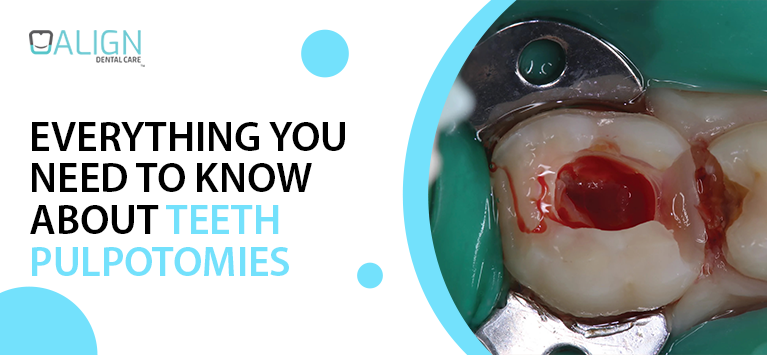
A pulpotomy procedure involves removal of coronal pulp while trying to preserve the health of the remaining radicular pulp tissue.
It is one of the most widely used methods to save infected, decayed teeth. Your dentist might recommend it if you or your child has a severe cavity and pulpitis, an inflammation of the pulp inside the tooth.
What is meant by Pulpotomy?
Read More…What is sleep apnea? Symptoms and exercises to fix this problem
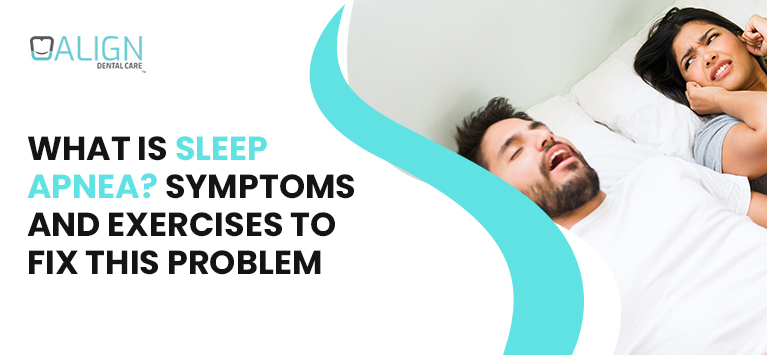
Sleep apnea is a condition where the person’s breathing stops or repeatedly starts during sleep. You may experience daytime sleepiness and loud snoring.
People with sleep apnea are most likely to have obstructive sleep apnea.
This usually occurs when the upper airway is blocked. The second type of sleep apnea, called central sleep apnea, is caused by a problem with the nervous system. This can happen briefly, but it will repeatedly occur in sleep. They may then snort or take deep, shallow breaths.
Untreated sleep apnea can causes complications like heart disease or depression. You may feel drowsy, and this increase your risk of being involved in an accident while driving or at work.
Read More…All you need to know about tooth nerve damage
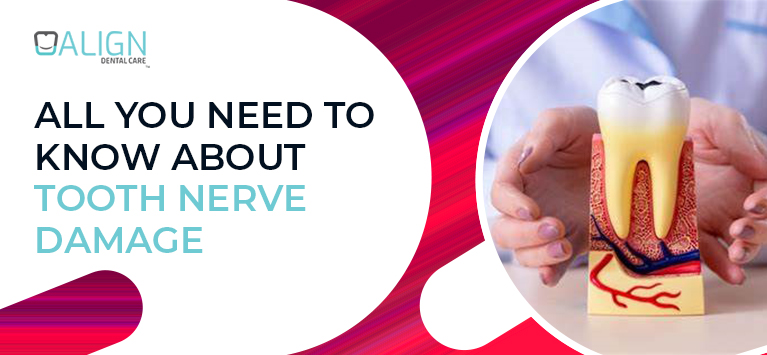
The nerves of a tooth are located in a vascularized connective tissue called pulp chamber in the centre of a tooth. Damage in the nerves surrounding a tooth is due to dental trauma or improper dental procedures; its aftereffects like burning sensation, numbness, and others are either temporary or permanent.
How does tooth nerve damage happen?
Unexpected dental injuries like deep cracks that extend to a tooth’s pulp chamber and constant pressure from teeth grinding and clenching expose the injured tooth’s nerve endings. Thus various external stimuli acquire a way to access the tooth nerves. They frequently strain, irritate the nerves and eventually lead to severe damage to the nerve fibres.
On rare occasions, badly executed dental operations like putting fillings close to the nerve endings, placing implant posts longer than they should be, and faulty pulp chamber closure during endodontic procedures can also damage a tooth’s nerves.
Read More…What everybody ought to know about dental fissure sealants?
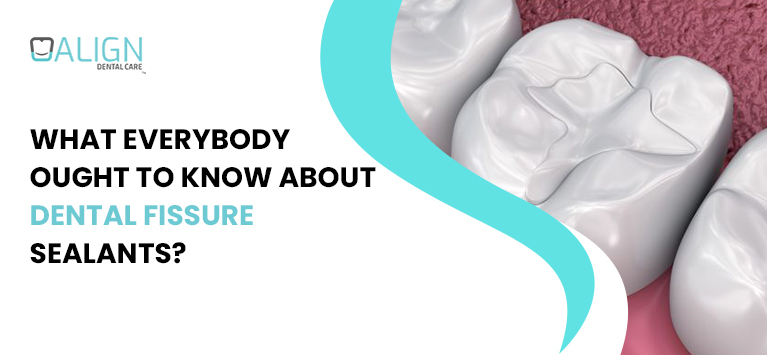
Dental fissure sealants are clear composite resins and are primarily made up of glass ionomer. These sealants are used as a preventative dental treatment to protect molar and premolar teeth from developing pits & fissure cavities.
When you look at your molar teeth, they have groovy lines called fissures. Simultaneously, pits are also present. Such pits and fissures form the chewing surfaces of molar teeth. The deep grooves allow the food particles stuck and accumulate there. Meanwhile, the base of those grooves is inaccessible to toothbrush bristles.
In such cases, food debris and microbes pile up, followed by causing plaque build-up, cavities, etc. The pits and fissures increase the risk of cavities however impeccable your oral hygiene activities are.
This is where fissure sealants are required. The role of this thin coating material in safeguarding our teeth is explained in this blog article.
Read More…




